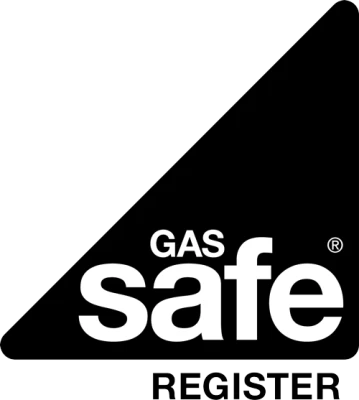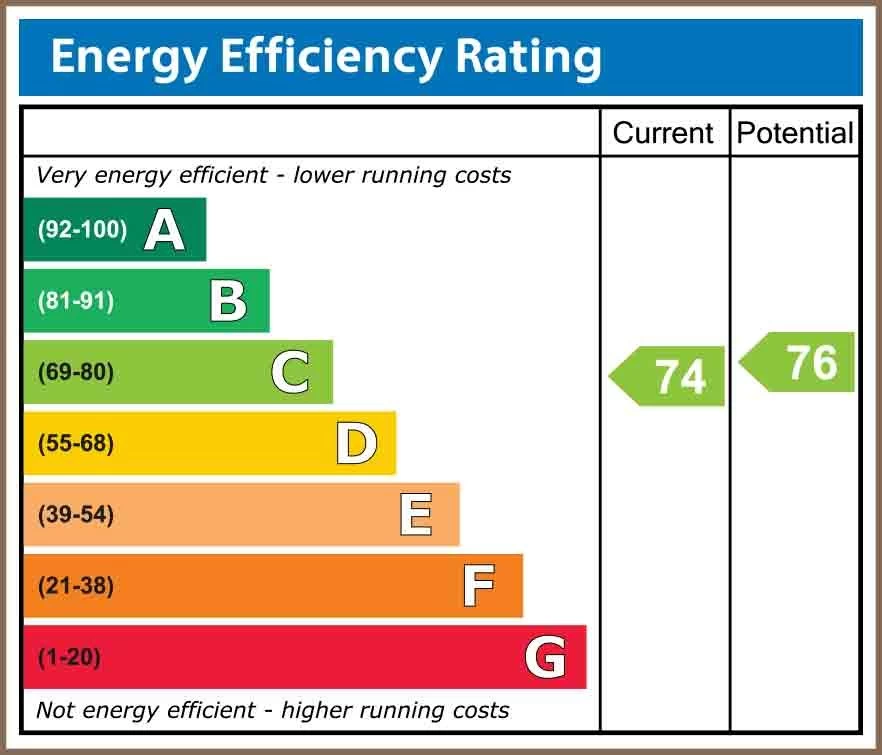How MultiCerts works
An easy, hassle-free experience!
Next day appointments
Rated 'Excellent' on Trustpilot
Fully accredited





An easy, hassle-free experience!

No more endless calls to find an engineer.

No more all-day waits for engineers not to show.
No hidden charges and last minute costs.
Similar to the colourful label found on new appliances, Energy Performance Certificates (EPCs) provide information on a building's energy efficiency, assigning it a rating ranging from A (highly efficient) to G (inefficient).
EPCs indicate a property's potential heating and lighting costs and its expected carbon dioxide emissions.Additionally, an EPC provides suggestions for improvements that can increase a building's energy efficiency rating and outlines cost-effective methods for achieving better ratings.

We're rated 'Excellent' on Trustpilot.
All our prices are fixed and include VAT

The Energy Performance Certificate (EPC) remains valid for ten years and can be utilised multiple times during that period, assuming the energy rating is above an F.
However, if energy enhancements have been made within that period, obtaining a new EPC might be advantageous if you intend to sell or rent your property to enhance its rating.
Your certificate will be emailed to you and available on your online account.
All our Engineers are fully qualified and insured.

Our customers have rated us 'Excellent" on Trustpilot.
Following a consultation in December 2020, the government has announced modifications to the Minimum Energy Efficiency Standards (MEES) for England and Wales. Under the new proposal, all rental properties must attain an EPC rating of 'C' or higher by 2025. Similar to the previous alterations, the new rules will be enforced initially for new tenancies, followed by all tenancies from 2028.
The regulatory changes aim to enhance home energy efficiency and lower carbon emissions, aligning with the government's aim of achieving net-zero emissions by 2050. Additionally, the fine for not possessing a valid EPC will increase from £5,000 to £30,000 beginning in 2025.

An Energy Performance Certificate (EPC) typically costs anywhere from £70 to £120 (inclusive of VAT). Several factors, such as the property type and the number of bedrooms determine the actual cost. Our charges are £69 for 1/3 bed and £79 for 4/6 bed inc VAT.
You cannot personally issue an EPC and may be offered this service by an estate or letting agent. Nevertheless, to secure the most favourable EPC rate, it's advisable to have the evaluation done directly.
The Energy Performance Certificate (EPC) rates a property's energy efficiency levels from A-G, with A being the most efficient and G being the least. Currently, the average UK home has a rating of D-E. The higher the rating, the more energy-efficient the building is.
It's important to note that a low EPC rating may result in additional costs to obtain a certificate. If the rating is below E, renting or selling the property is illegal, and it can also negatively affect the property's value and salability. Thus, paying for an EPC certificate is worthwhile to improve the home's energy efficiency.
The energy efficiency of properties is graded on a sliding bar graph similar to the labels when buying new electrical devices. The graph uses a colour scale from green to red to indicate energy requirements or consumption. The EPC certificate shows the current and potential ratings for the Energy Efficiency Rating and the Environmental Impact (CO2) Rating.
If your property lacks a valid Energy Performance Certificate, it is illegal to rent it out. Local authorities may impose a fine of up to £5,000 for noncompliance. The penalty for not having a valid EPC of ‘C’ or above will increase to £30,000 when regulations are updated in 2025.
At the start of the tenancy, or as soon as possible, you must provide your tenant with a copy of the EPC if you have renewed the certificate while they are renting. Landlords are legally obligated to give tenants the government’s How to Rent guide, EICR, and Gas Safety Certificate. Failure to supply these legal documents will prevent you from issuing a Section 21 notice.
One of our accredited assessors will conduct a thorough visual inspection of your property to determine its EPC rating. The assessor will require access to all areas of the property to gather relevant details and measurements to provide an accurate rating and prepare a comprehensive report.
The assessor will consider several factors when evaluating a residential, commercial, or public building and calculating its EPC rating. The heating system installed in the property will have the most significant impact on the rating, including the size, type, and thermostat settings. It is crucial to maintain normal thermostat settings to obtain an accurate rating.
The lighting fixtures in the property will also be noted, including the number and type of fixtures in each room. Replacing any incandescent or CFL fixtures with LED ones can significantly reduce energy consumption and improve the property's energy rating.
Windows play a smaller role in EPC calculations, but replacing single-glazed windows with double-glazed ones can significantly improve the rating due to increased insulation.
The assessor will also pay attention to loft insulation, as the lack of it can cause up to 33% of heat loss in a home. The EPC calculations will also consider doors, hot water pipe insulation, and any renewable energy technology installed in the property.
Once the EPC assessor completes the inspection of your property, they will issue a valid Energy Performance Certificate. The certificate will include a detailed breakdown of the energy efficiency of the building, rated from A to G, using a grading system.
If your building is given a poor rating, it indicates it is not energy efficient. In most cases, properties with poor ratings will need to make improvements to increase the energy efficiency of the building. These improvements are usually recommended in the energy performance certificate.
However, these improvements require funds, some of which can be costly and significantly impact your finances.
To save money and prevent such costs, it's better to be proactive and have an EPC inspection before it becomes too late.
Before booking an EPC inspection, there are several ways to improve your home's energy performance. Some of these include insulating your home to reduce heat loss, installing double glazing or secondary glazing, draught-proofing doors and windows, using low-energy light bulbs, using a thermostat to control your central heating, closing doors to unused rooms, and considering renewable energy technologies like solar panels or wind turbines.
It is worth noting that providing energy-efficient buildings helps reduce carbon footprints and adds value to the property.
On average, an Energy Performance Certificate survey takes around 20 minutes for a studio apartment to an hour for larger family homes. The size of the property is the main factor determining the duration of the survey, but the property's layout also plays a role.
As EPCs are now a legal requirement when selling or renting a building, it is crucial to understand how to obtain one for your property. To acquire an Energy Performance Certificate, you must enlist the services of a certified energy assessor, who will conduct an energy assessment of your property by inspecting the building.
During the inspection, the energy assessor will look at the heating system and other important parts of the building. If necessary, they may also need to take measurements and photos.
The length of an inspection usually depends on how big the property is and how fast the energy assessor works. Most of the time, though, the exam is not a long process.
After the assessment is done, the data collected by the assessor will be used to create the Energy Performance Certificate, this data is entered into software, which then figures out both the current rating and the potential rating.
No minimum requirements need to be met when selling a property except for having a valid Energy Performance Certificate. However, a minimum requirement has been put in place for rental properties. If the property does not meet the minimum requirement of an 'E' rating, tenants will not be allowed to move in.
The Energy Performance Certificate (EPC) rates a property's energy efficiency levels from A-G, with A being the most efficient and G being the least. Currently, the average UK home has a rating of D-E. The higher the rating, the more energy-efficient the building is.
It's important to note that a low EPC rating may result in additional costs to obtain a certificate. If the rating is below E, renting or selling the property is illegal, and it can also negatively affect the property's value and salability. Thus, paying for an EPC certificate is worthwhile to improve the home's energy efficiency.
The energy efficiency of properties is graded on a sliding bar graph similar to the labels when buying new electrical devices. The graph uses a colour scale from green to red to indicate energy requirements or consumption. The EPC certificate shows the current and potential ratings for the Energy Efficiency Rating and the Environmental Impact (CO2) Rating.
Before advertising your property for sale or rent, it is mandatory to obtain an EPC for prospective tenants or buyers.
Starting from April 2018, Minimum Energy Efficiency Standards (MEES) became legally binding for privately owned properties in England and Wales. The law requires all properties to have an EPC rating of at least 'E' before being let. From April 2020, this law will apply to existing lettings of residential properties, and from April 2023, it will apply to existing commercial properties.
However, there are some exemptions to the MEES regulation. Properties not legally required to have an EPC, such as listed buildings, temporary properties, and holiday lets, are unaffected. Short-term rentals (less than six months) and long-term rentals (over 99 years) are also exempt.
To meet the "Golden Rule," landlords and tenants must make cost-effective changes to their properties to achieve an EPC rating of E or above. An independent energy assessor must sign these changes. For commercial properties, all energy investments must be cost-effective within a seven-year period.
If the necessary energy-efficiency improvements would reduce a property's market value by more than 5%, the property is exempt from MEES. A qualified independent surveyor must assess the potential impact on the property's value. In addition, if a tenant, superior landlord, or planning body refuses to consent or requires conditions that the landlord cannot meet, the landlord can claim an exemption based on third-party consent.
MEES only applies to buildings occupied under a "Relevant Tenancy," which includes assured tenancies, regulated tenancies, and domestic agricultural tenancies. Properties occupied solely under a license are not affected. Social housing schemes are also exempt from MEES.
Checking if you already have an Energy Performance Certificate (EPC) online is an easy process since all EPC certificates are recorded in the national database. Since an EPC certificate is valid for ten years, it's possible that some people may not be aware if the previous owner had one issued or may simply forget. The process of checking for an EPC online is free of charge and doesn't require any EPC certificate costs.
See what's included in our Energy performance assessment.
Find out how much it will cost to heat and power your property.
Discover energy-saving tips that can help you save money.